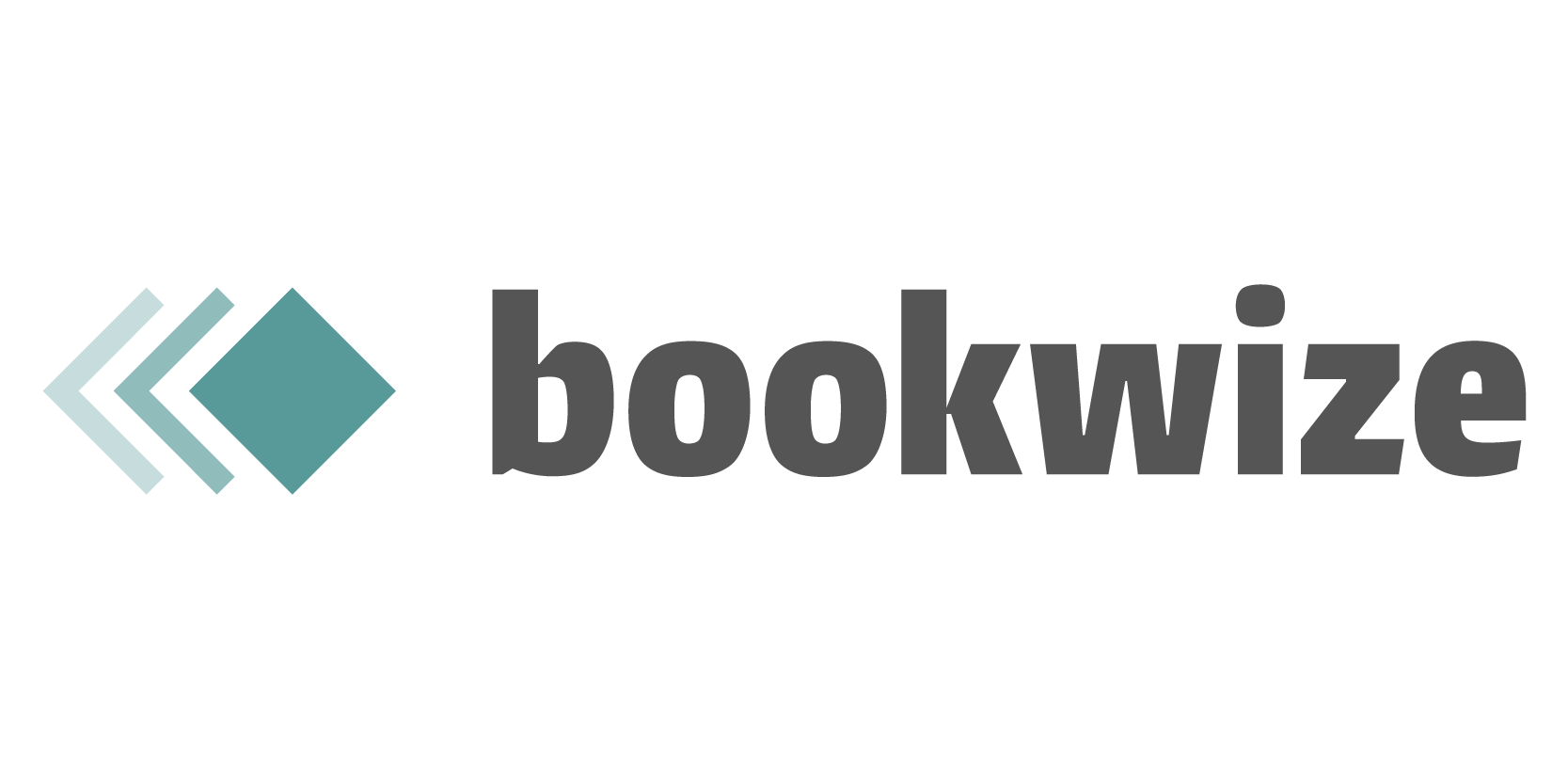Most channel management software may be accessed from numerous devices and platforms. This means you can manage your channels from a PC, tablet, or smartphone, and it works on both iOS and Android devices. This provides flexibility and convenience, whether you're managing channels on the move or in the office. However, it is always advisable to check with the software supplier to confirm compatibility with your preferred devices and platforms.
List of 20 Best Channel Management Software
Hotel-Spider is a software created by Swiss tech professionals to enhance visibility and optimize online sales for your hotel. Our intuitive and transparent hotel extranet streamlines the management of all your sales channels in a single platform. Le...Read More Hotel-Spider
Bookwize is a highly advanced e-commerce platform crafted specifically for hotels, equipped with a comprehensive Booking Engine, seamless integration with Channel Managers, and intelligent Business Intelligence Reporting. This powerful solution not o...Read More Bookwize
STAAHs cutting-edge Channel Manager empowers hotels to effortlessly distribute their room inventory across various channels. Its intuitive interface enables hoteliers to efficiently handle rates and availability from a centralized dashboard, boosting...Read More STAAH
EDGE - Powered by Square Yards is a CRM solution crafted exclusively for the Real Estate sector. Our advanced technology seamlessly integrates with your sales strategies, boosting your sales velocity. From lead generation to nurturing and enabling e-...Read More EDGE - Powered by Square Yards
Channeltivity is a channel management software that empowers tech companies to enhance their partner enablement, marketing, and sales strategies. This secure and intuitive platform, coupled with seamless integrations, boosts partner productivity and...Read More Channeltivity
5stelle* is a cloud-based hotel management software. Streamline your online sales with ease using our user-friendly interface, eliminating the need for costly hardware and time-consuming installations. Our all-inclusive subscription offers top-notch...Read More 5stelle*
YieldPlanet is a provider of hotel distribution and channel management software. This innovative solution is designed to streamline operations and increase revenue for hotel owners. With powerful data-driven tools, YieldPlanet enables businesses in t...Read More YieldPlanet
Computer Market Research is a channel management platform that enhances your sales, marketing, and data operations. This robust software seamlessly integrates with leading ERP and CRM systems to optimize partner collaboration, drive efficiencies, and...Read More Computer Market Research
A innovative Marketing Extranet platform, designed to enhance and streamline yA marketing efforts. A all-in-one solution provides powerful campaign management tools and facilitates the generation of local leads. With efficient content creation and ea...Read More Marketing Extranet
AsiaTech Channel Management solution for effortless control of your hotels online travel agency connections. Streamline your digital operations and boost revenue with just one click updates. Stay ahead of market trends and keep your hotel connected w...Read More AsiaTech Channel Management
Rezio is the premier online booking system for Attractions, Tours, and Activities companies in Asia. It provides a comprehensive platform for effortlessly selling tickets, tours, and experiences online and reaching a global market. With Rezio, busine...Read More Rezio
Hotel Link solution for seamless hotel management and distribution. With our user-friendly platform, you can effortlessly handle daily operations, boost revenue, and effectively promote your property online to outshine competitors. Discover the possi...Read More Hotel Link
Beds24 is a hotel management solution designed to simplify your business operations. Experience hassle-free online booking, secure payment processing, and efficient multi-channel workflow management. Improve your customer relationships with Beds24s i...Read More Beds24
HotelRunner is a channel management and digital marketing platform designed for hoteliers and property owners. Our cloud-based system offers a seamless and user-friendly experience, allowing easy access and management of your online presence. Elevate...Read More HotelRunner
ChannelPilot is the innovative e-commerce solution that simplifies and streamlines all your online tasks. This comprehensive software automates product data management, optimizes feeds, and enables dynamic pricing. With ChannelPilot, enhancing your o...Read More ChannelPilot
Discover the groundbreaking potential of Allbound, the essential partner relationship management solution that revolutionizes channel team operations. With advanced data analysis and automated tools, it elevates the partner experience and empowers st...Read More Allbound
HotelsCentric is a all-in-one cloud-based solution for hotels, resorts, and B&Bs. Streamline your website content, customer relationships, reservations, and property management with ease. Take advantage of our powerful hotel management tools such as...Read More HotelsCentric
Parity Rate - an advanced software that ensures consistent pricing for hotels on all online platforms. Say goodbye to pricing discrepancies and boost your revenue with ease. With its advanced features, Parity Rate streamlines your pricing strategy an...Read More Parity Rate
DataFeedWatch is the go-to solution for maximizing your product feeds across multiple channels. With a successful history of catering to over 17,000 brands, it enhances e-commerce efficiency and eases marketplace administration with automated process...Read More DataFeedWatch
CRM4Sure is a business tool to elevate your performance. Streamline your sales process with powerful features like lead management, funnel organization, task planning, and real-time activity tracking. Stay on top of your game with GPS-based trip plan...Read More CRM4Sure
Learn More About Channel Management Software
- What Is Channel Management Software?
- What Are The Recent Trends In Channel Management Software?
- Benefits Of Using Channel Management Software
- Important Factors To Consider While Purchasing Channel Management Software?
- What Are The Key Features To Look For In Channel Management Software?
- Why Do Businesses Need Channel Management Software?
- How Much Time Is Required To Implement Channel Management Software?
- What Is The Level Of Customization Available In Channel Management Software?
- Which Industries Can Benefit The Most From Channel Management Software?
- Conclusion
What Is Channel Management Software?
Channel Management Software, often known as Channel Management Systems or Channel Management Platforms, is a type of software that helps firms manage their sales channels and distribution agreements more effectively. It is intended to simplify and streamline the processes associated with maintaining and expanding relationships with numerous channels, including retailers, resellers, distributors, and wholesalers.
The program integrates all channel-related tasks into a one platform, including inventory management, order fulfillment, pricing, promotions, and communication. Businesses may now have real-time insight and control over their entire channel network, streamlining operations and increasing revenues. One of the most important features of Channel Management Software is its capacity to automate processes, which reduces manual labor and errors.
For example, it can update inventory levels and prices across all channels without requiring manual data entry. It can also provide reports and analytics that provide insights into the performance of various channels, allowing firms to make more educated decisions. Furthermore, Channel Management Software integrates with a variety of e-commerce platforms, marketplaces, and other corporate systems, enabling easy data exchange and synchronization.
This allows firms to broaden their reach and sell their products through different channels without having to handle them separately. In addition to the features listed above, some advanced Channel Management Software may include lead management, partner onboarding, and performance tracking, giving it a complete solution for managing all elements of channel partnerships.
Overall, Channel Management Software enables firms to streamline their channel operations, improve collaboration with partners, and increase sales effectiveness. It can be an effective tool for any organization trying to expand its distribution network, increase sales, and enhance overall efficiency. When making a purchase, it is critical to compare the features and cost of many options to choose the best fit for your company's specific requirements.
What Are The Recent Trends In Channel Management Software?
Channel management software has become a vital tool for organizations of all sizes, allowing them to successfully manage their connections with a variety of channel partners, including distributors, retailers, and resellers. As the market for channel management software grows, buyers must stay up to date on current trends in order to make informed purchasing decisions.
Buyers of channel management software should be aware of the following main trends:
1. AI Integration: The usage of artificial intelligence (AI) in channel management software has increased significantly in recent years. AI-powered technologies can evaluate sales data, forecast demand, and optimize inventory levels to improve channel partner performance. It may also automate regular chores like order routing and tracking, freeing up firms to focus on strategic initiatives.
2. Collaborative Platforms: With the rise of remote work and virtual selling, firms are searching for channel management software that includes collaborative features like real-time communication, document sharing, and task management. These platforms facilitate communication and streamline workflow between enterprises and channel partners.
3. Data Analytics: Data is a vital asset for businesses, and channel management software increasingly includes advanced analytics capabilities to help managers obtain insights into channel performance. Data analytics, from analyzing sales and inventory levels to monitoring partner performance, can provide useful insights to help you make better decisions.
4. Integration With E-Commerce Platforms: As e-commerce takes over the retail industry, organizations are increasingly looking for channel management software that connects with popular e-commerce sites. This allows for seamless selling across numerous channels and gives a consolidated picture of sales and inventory data.
5. Mobile Applications: As mobile devices become more popular, several channel management software companies are developing mobile applications that allow for quick data access and contact with channel partners while on the go. This enables organizations to communicate with their partners and manage their channel operations from anywhere and at any time.
Benefits Of Using Channel Management Software
Channel management software is a powerful tool that helps businesses manage all aspects of their sales channels in one centralized platform. Whether you are a manufacturer, distributor, or retailer, using this software can provide numerous benefits that can potentially increase your revenue and streamline your operations. In this buyer's guide, we will take a closer look at the top benefits of using channel management software.
1. Streamlined Channel Operations: One of the biggest advantages of using channel management software is that it simplifies the complex process of managing multiple sales channels. Whether you have an online store, brick-and-mortar locations, or sell through third-party retailers, this software allows you to manage everything from one central location. This streamlines your operations, reduces manual work, and ensures consistency across all channels.
2. Improved Inventory Management: With channel management software, you can easily track inventory across all your channels in real-time. This means you can avoid stockouts and overstocking, leading to improved customer satisfaction and reduced costs associated with excess inventory. Some advanced software even has forecasting capabilities, helping you make data-driven decisions to optimize your inventory levels.
3. Enhanced Partner Collaboration: If you work with multiple partners or distributors, channel management software can greatly improve your collaboration. It allows you to easily communicate and share information with your partners, ensuring everyone is on the same page. This leads to improved efficiency, reduced errors, and a more streamlined partnership.
4. Centralized Order Management: Managing orders from multiple sales channels can be a daunting task, but with channel management software, it becomes a breeze. This software integrates with various platforms, allowing you to track orders from different channels in one place. You can easily see which orders are pending, being processed, or shipped, ensuring timely deliveries and satisfied customers.
5. Data-Driven Insights: Channel management software provides businesses with valuable insights and analytics to make informed decisions. You can track sales and performance across different channels, identify trends, and make data-driven decisions to optimize your operations. This leads to improved efficiency, better sales strategies, and increased revenue.
6. Improved Customer Experience: With the rise of omnichannel retailing, customers expect a seamless experience across all channels. By using channel management software, you can ensure consistency in branding, pricing, and customer service across all your channels. This leads to a better overall customer experience, leading to increased loyalty and repeat business.
Important Factors To Consider While Purchasing Channel Management Software?
Channel management software has evolved as a critical tool for firms looking to better manage their sales channels, streamline their distribution operations, and enhance total income. With so many options available on the market, purchasers must thoroughly assess their needs and compare the features and capabilities of various channel management software before making a purchase.
This buyer's guide will highlight the key criteria that purchasers should consider when purchasing channel management software to ensure they make the best decision for their organization.
1. Integration And Compatibility: One of the most important considerations when selecting channel management software is compatibility with your existing systems and processes. It is critical that the software interacts seamlessly with your CRM, ERP, and other critical technologies to avoid disruptions in the flow of information and operations.
2. Automation And Customization: The software should provide automation features to streamline routine operations and duties like order processing, inventory management, and reporting. It should also have customization possibilities, allowing you to adjust the program to your specific business needs and operations.
3. Multi-Channel Management: Channel management software should be capable of managing numerous channels, such as e-commerce, retail, and wholesale. It should enable you to centralize all of your channels, products, and customer data, resulting in a comprehensive view of your sales and distribution networks.
4. Order And Inventory Management: Effective order and inventory management are critical for channel success. To reduce stockouts and streamline operations, the software should have capabilities such as real-time inventory tracking, backorder management, and automated order processing.
5. Reporting And Analytics: Data is critical for making informed business decisions, therefore channel management software should include powerful reporting and analytics features. It should have customisable dashboards and reports to monitor sales performance, inventory levels, and channel profitability, among other things.
6. Training And Support: Implementing new software can be difficult, thus it is critical to examine the training and support provided by the software supplier. Look for software that provides full training and 24-hour technical support to address any issues that may emerge.
7. Scalability And Flexibility: As your firm expands, so will your channel management requirements. As a result, it is critical to select software that is scalable and flexible enough to meet changing business needs. This will save you the headache and expense of investing in new software as your company grows.
What Are The Key Features To Look For In Channel Management Software?
Channel management software is a useful tool for streamlining and optimizing your sales operations across numerous channels. As a buyer, it is critical to select the appropriate software that matches with your business objectives and satisfies your individual requirements. With so many alternatives on the market, it can be difficult to identify which features are necessary for your organization. To make an informed decision, here are the important characteristics to look for in channel management software:
1. Multi-Channel Integration: One of the key goals of channel management software is to integrate and manage numerous sales channels effectively. Look for a platform that seamlessly integrates with a variety of channels, including marketplaces, online storefronts, social media platforms, and more. This will allow you to centralize your sales data, inventory, and orders, saving you time and effort while eliminating errors.
2. Order And Inventory Management: Effective order and inventory management are critical to the success of any firm. Choose software that provides real-time inventory tracking across all of your channels, automated inventory replenishment, and a powerful order management system for managing orders from many channels. This ensures that orders are processed on schedule, stock levels are accurate, and there is no overselling or underselling.
3. Analytics And Reporting: Data is critical to making sound business decisions. Look for channel management software that includes advanced analytics and reporting capabilities, such as sales performance, channel-specific data, inventory levels, and so on. This will assist you in identifying trends, bottlenecks, and growth prospects, allowing you to make smart decisions to increase sales and profits.
4. Channel-Specific Tools: Each channel has its own set of specifications and features. Choose software that has channel-specific tools and features, such as marketplace listing optimization, social media scheduling, and so forth. This will allow you to customize your approach for each channel and maximize your sales potential.
5. Automation And Customization: Time is money, and in today's competitive corporate environment, automation is critical to efficiency and productivity. Look for software that automates repetitive operations like order fulfillment, inventory management, and more. Additionally, look for a platform that allows you to adjust workflows and processes to match your individual business requirements.
6. User-Friendly Interface: Ease of use is another important feature to consider when selecting channel management software. Look for a platform with an easy-to-use interface and customized dashboards that enable you to monitor and manage critical data quickly and efficiently. A thorough onboarding procedure and dependable customer support are other signs of user-friendly software.
By focusing on these essential aspects, you can limit down your options and select the best channel management software for your company. Remember to assess your present and future company requirements in order to discover a scalable and adaptable solution that will support your growth. With the proper platform, you can effectively manage your sales channels, increase client happiness, and drive corporate success.
Why Do Businesses Need Channel Management Software?
Businesses today operate in a highly competitive world, and reaching and connecting with customers across numerous channels is critical to success. This is where channel management software comes in, providing organizations with an all-in-one solution for easily managing and optimizing their multiple sales channels from a single centralized platform. One of the primary reasons why firms require channel management software is to streamline their operations.
Managing inventory, orders, and customer data across numerous channels, including online marketplaces, ecommerce websites, social media platforms, and brick-and-mortar stores, can be complex and time-consuming. Channel management software automates these operations, saving firms time and money. Furthermore, channel management software enables firms to remain organized and consistent across all channels.
Businesses that integrate sales and marketing efforts can provide their customers with a consistent brand experience regardless of which channel they choose. This not only improves the brand's identity, but also increases customer trust and loyalty. In addition, channel management software offers firms vital insights and statistics.
Businesses that manage sales and consumer data across all channels may make data-driven decisions and continually improve their tactics. This enables firms to identify top-performing channels and spend resources accordingly, so increasing their sales potential. Furthermore, channel management software helps organizations expand their reach and enter new industries.
Businesses that effectively integrate with numerous sales channels can simply enter new markets and reach a larger client base. This not only boosts sales, but also allows firms to diversify their revenue streams. Last but not least, channel management software provides additional capabilities such as inventory management, order fulfillment, and customer support on a single platform. This simplifies the overall process while also lowering the chance of errors and delays, resulting in a better client experience.
How Much Time Is Required To Implement Channel Management Software?
The time required to adopt channel management software varies based on a number of factors, including the size of your business, the complexity of your channels, and the product's specific capabilities. On average, it can take between a few weeks and many months. First, you must examine the initial setup and integration phase.
This entails linking the software to your current systems, such as your customer relationship management (CRM) system and e-commerce platform. This process may take several weeks, depending on the availability of your IT personnel and the complexity of your current systems. Next, you must adapt the software to meet your specific business requirements.
This can entail developing various types of channels, customizing procedures, and configuring user access and rights. Depending on the size and complexity of your channels, this stage may take many weeks or months. Training your team members on how to utilize channel management software efficiently is an important part of the implementation process.
This involves comprehending the system's functionality, best practices for channel management, and troubleshooting frequent issues. The amount of time necessary for training will vary depending on the software's complexity and the number of your crew. It is also critical to assess the level of support and help provided by the software provider during the deployment process. Some vendors may provide training and technical support to expedite the deployment process.
However, this may also be determined by the service level agreement (SLA) you have with the vendor and the availability of their support team. In conclusion, the time necessary to implement channel management software might range from a few weeks to several months, depending on a number of variables. To ensure a smooth and effective implementation, plan and allocate the necessary resources while also working closely with the software vendor.
What Is The Level Of Customization Available In Channel Management Software?
When it comes to handling numerous sales channels, organizations require a platform that gives them complete control and flexibility. This is where channel management software comes in, providing a complete solution for streamlining and optimizing online sales channels. When choosing channel management software, one important factor to consider is the level of flexibility available.
This refers to the extent to which organizations can customize the software to match their specific demands and requirements. Let's take a closer look at the customization options in channel management software. First and foremost, organizations have the ability to modify the software's general interface. This includes branding components like logos, colors, and typefaces, which help firms maintain a consistent visual identity across all mediums.
They can also customize the layout and organization of the program to fit their own business processes and workflows. In terms of channel integration, firms can select which marketplaces, e-commerce platforms, and other online channels to administer through the software. This allows them to focus on the channels that are most relevant and valuable to their business, rather than wasting time and resources on irrelevant channels.
Furthermore, channel management software provides configurable features and functionalities. Businesses can specify the level of automation they desire, ranging from fully automated listing and inventory management to manual control over specific operations. They can also tailor pricing and marketing for specific channels based on their target audience and competitive landscape.
Furthermore, the program allows firms to tailor their reporting and analytics capabilities. This enables companies to track important performance indicators such as sales, traffic, and customer data, as well as develop customized reports that provide useful insights into the operation of their sales channels.
Which Industries Can Benefit The Most From Channel Management Software?
Channel management software (CMS) is a strong tool that may help a variety of industries. This program is intended to assist organizations successfully manage their sales channels, streamline processes, and increase overall sales and revenue. If you are thinking about investing in a CMS for your company, it is critical to understand which industries would gain the most from this software.
we'll look at the main sectors that can benefit from channel management software and how it can help them meet their business objectives.
1. E-commerce And Retail Industry: E-commerce and retail firms benefit the most from channel management software. This program helps merchants manage inventory, promotions, pricing, and order fulfillment across different internet platforms. Businesses may keep track of the availability of their items and maintain an uninterrupted flow of sales by using real-time data. Furthermore, with capabilities like as automated inventory synchronization and order routing, businesses may optimize operations and give customers with a consistent shopping experience.
2. Manufacturing Area: Manufacturing is another area that can greatly benefit from channel management software. With continually shifting demand and supply, manufacturers frequently struggle to maintain inventory levels and assure timely delivery to their clients. Channel management software can assist manufacturers in meeting these difficulties by offering real-time visibility into inventory levels across several sales channels and improving the order fulfillment process. This, in turn, can help firms improve efficiency, save costs, and increase overall sales.
3. Hospitality Industry: Channel management software implementation can have a significant impact on the hospitality industry as well. Hotels, resorts, and other businesses in the industry rely on online travel agencies and distribution partners, so maintaining several channels can be difficult. A CMS allows these organizations to seamlessly manage all of their distribution channels from a single platform. They can also use rate management and automated bookings to increase occupancy and overall revenue.
4. Wholesale And Distribution Industry: Wholesale and distribution companies are continually looking for methods to enhance efficiency and cut expenses. Channel management software can be an invaluable tool in this endeavor. It enables firms to manage orders, fulfill them, and track shipments over different channels. Automated invoicing, inventory monitoring, and connectivity with accounting systems can also help these organizations save time and money.
5. Travel And tourist business: The travel and tourist business relies largely on online bookings and reservations via a variety of channels, including online travel agencies and tour operators. It might be difficult to manage these channels and ensure that bookings are made on time and accurately. Channel management software can make this process easier by offering a single platform for managing and monitoring all reservations and bookings. This not only leads in more efficient operations but also allows firms to maximize their income potential.
Conclusion
To summarize, selecting the correct channel management software for your organization is critical for streamlining processes, improving sales, and ultimately driving growth. You may choose the best solution for your business by taking into account your specific requirements, budget, and the numerous features and integrations available. To make an informed decision, conduct thorough study and comparison of various software options, as well as read reviews and consult with industry professionals.
In addition, take advantage of any free trials or demos offered by software vendors to fully understand the platform's capabilities and usability. Furthermore, investing in dependable and user-friendly channel management software will benefit your company in the long run by saving time and money and helping you to successfully manage different sales channels.
With the appropriate software in place, you can stay one step ahead of the competition while providing a seamless and efficient experience for both your team and customers. We hope this buyer's guide helped you choose the finest channel management software for your organization. With thorough study and deliberation, you can make an informed decision that will eventually result in improved sales and success for your brand.
Channel Management Software FAQ's
Can Channel Management Software Be Accessed Across Multiple Devices And Platforms?
Is Channel Management Software Future-Proof And Adaptable to Emerging Technologies Like Ai, Blockchain Or Iot?
Yes, channel management software is meant to be future-proof and adaptable to upcoming technologies such as artificial intelligence, blockchain, and the Internet of Things. This means that when these technologies mature and become more common, channel management software will be able to incorporate and use them effortlessly. Channel management software, which includes complex capabilities such as automated data analysis and real-time inventory tracking, is continually growing to keep up with emerging technology.
Is There A Free Trial Offered To Assess Channel Management Software Before Committing?
Yes, several organizations provide free trials for their channel management software. This enables potential users to test the program and determine whether it fits their requirements before making a commitment. It is critical to take advantage of free trials and thoroughly assess the software to ensure it is a good fit for your company. Make a note of any limits during the trial period so you can make an informed decision.
Does Channel Management Software Offer Data Security Features nd Meet Regulatory Compliance Standards?
Yes, most channel management software has sophisticated data security measures and is designed to meet regulatory compliance requirements. These features include data encryption, access limits, and regular data backups to protect sensitive information. These software also undergoes regular security audits to ensure compliance with industry requirements such as GDPR and CCPA. Investing in trustworthy channel management software can give organizations and customers peace of mind.
Can Channel Management Software Integrate Seamlessly With Existing Tools And Platforms?
Yes, most channel management software alternatives are designed to work easily with other tools and platforms, like as CRM systems, email marketing tools, and e-commerce platforms. This enables organizations to streamline their procedures and access all important data in a one location. Furthermore, many channel management software provides APIs or connectors to facilitate the integration process and ensure that data flows smoothly between systems.






















